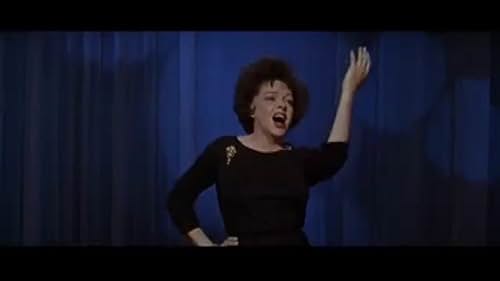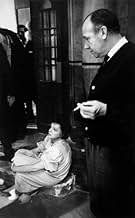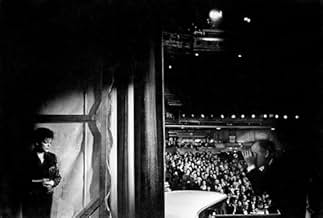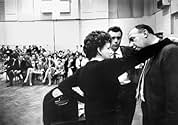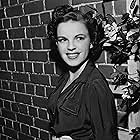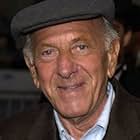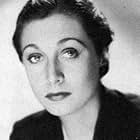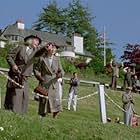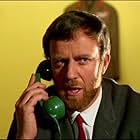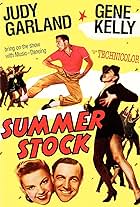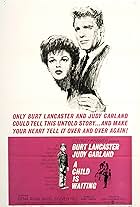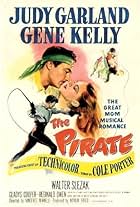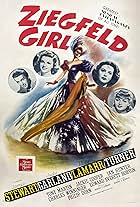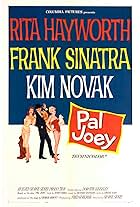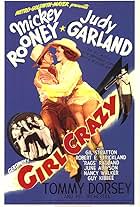Jenny Bowman is a successful singer who visits David Donne to see her son Matt again, spending a few glorious days with him while his father is away in Rome in an attempt to attain the famil... Read allJenny Bowman is a successful singer who visits David Donne to see her son Matt again, spending a few glorious days with him while his father is away in Rome in an attempt to attain the family that she never had.Jenny Bowman is a successful singer who visits David Donne to see her son Matt again, spending a few glorious days with him while his father is away in Rome in an attempt to attain the family that she never had.
- Backstage Parent
- (uncredited)
- …
- HMS Pinafore Audience
- (uncredited)
- …
- Theatre Audience
- (uncredited)
- Director
- Writers
- All cast & crew
- Production, box office & more at IMDbPro
Storyline
Did you know
- TriviaOfficially regarded as her final film before her death in 1969, Judy Garland filmed it immediately after making A Child Is Waiting (1963) though I Could Go on Singing (1963) was released first. At the time of filming, Garland was going through an ugly child custody battle of her own with her soon-to-be-divorced husband, Sidney Luft. The opportunity to make a film in England with Sir Dirk Bogarde, an actor and friend she had long admired, provided the perfect escape from her problems at home but unfortunately Garland carried her troubles with her across the Atlantic.
- Quotes
Jenny Bowman: You think you can make me sing? Do you think you can - do you think George can make me sing? or Ida? You can get me there, sure, but can you make me sing? I sing for myself. I sing when I want to, whenever I want to, just for me. I sing for my own pleasure. Whenever I want - do you under stand that?
- ConnectionsEdited into Chop Suey (2001)
The story tells of an American singer, Jenny Bowman who comes to London for a sold-out series of concerts. She longs to see her illegitimate son Matt (Gregory Phillips) whom she left with his father, Dr. David Donne (handsome Dirk Bogarde) years before to pursue a career. Matt, unaware of who Jenny really is, is taken under her magic spell much to David's chagrin. Jenny becomes attached to Matt and undergoes a lot of trauma as she seeks to pursue her way back into David's life in order to become Matt's mother at last.
The obvious Madame X story could be an instant turnoff for those who are sickened by sappy dramas like this, even the best ones of the 30's and 40's.
However, Judy takes this beyond possible Ross Hunter soap opera twists and turns it into a one-woman show where she gave movie audiences a chance to see what she had been doing live on stage since her MGM years ended 13 years before. The excitement builds with Jenny's manager George (a young Jack Klugman) helping to build up her excitement and the audience's enthusiastic rise to their feet when she makes her first entrance. Matt's smile as she begins to sing is one that must have crossed many a young man's face during this era, particularly the gay fan base Judy had been building up during the past 10 years. His earlier performance in drag in a production of "HMS Pinafore" could have come off as camp (especially when he introduces Judy to one of his co-stars as "One of the Pinafore's best top men"), but fortunately, his youth kept him from looking like a female impersonator.
Each of Garland's numbers are carefully staged with her outfits matching the backdrops, yet not blending in. Particularly dramatic is Garland's rendition of "By Myself", a Fred Astaire tune from "The Bandwagon". In a flaming sequined red dress (and an equally fiery mood), Garland unleashes all the passion of her performance. One solo ballad, "It Never Was You", is reminiscent of "Friendly Star" from her last MGM movie, "Summer Stock", done in a way which proves Judy could sing any type of song. "Hello, Blue Bird" is a companion tune with "Over the Rainbow", done in a subtle shade of blue, indicating that maybe Dorothy did find where those happy little blue birds fly. She sings the title song over the credits and in the rousing finale.
Dirk Bogarde gets second billing, but doesn't appear as much as the sweet looking Gregory Phillips, then 14 years old, just a few years younger than Judy's daughter Liza. Bogarde and Garland do have some great scenes together, but lack the chemistry of Garland and her previous British co-star, James Mason. Phillips' excitement in the concert scenes is most believable, and he works well with the great lady of song. Following his Broadway experience with another great entertainer, Ethel Merman in "Gypsy", Jack Klugman does well as Garland's patient agent, George; It would be almost another decade before he found lasting fame on TV as part of "The Odd Couple" and later "Quincy". In the confrontation scenes with Garland, Klugman is outstanding. The small role of Ida, Garland's wardrobe lady, is played by the wonderful stage and screen actress Aline MacMahon, a tall lanky character performer who once had the opportunity for screen stardom but preferred the more real characters she ultimately played. (See her as one of the wisecracking "Gold Diggers of 1933" as well as one of the many kind hearted characters she played during her Warner Brothers days; You will see what a lovely performer she was, and the chance to appear with Garland was an excellent way to top her career.)
It is a shame that this film came and went. It probably did very well in cities such as New York, Los Angeles, and San Francisco, where Judy's gay audiences flocked to see it, but probably failed in smaller areas where audiences wanted to remember Judy as Dorothy and not see her as a troubled adult with a scandalous past (much like herself). Sometimes its hard to tell where Judy ends and Jenny begins, but life is not imitating art here; She is only playing several aspects of who Judy was. Yes, she could be trouble (as Dirk Bogarde would reveal about her behavior on the set), but many people (Dirk included) would admit that when she did deliver, the magic she gave was worth the trouble. Jenny comes off as a troubled woman filled with the love for her audience that Judy indeed had, and an almost unfullfillable need for love from those immediately around her. There is a pain in Judy's eyes that comes out in the character that makes you wonder if she wasn't feeling pain inside from playing part of her own life. Yet, there is a humor that shows the survivor side as well, something Judy could portray as well. Both Jenny and Judy were very complex women, and Judy's ability to play that side of her without coming off as self-parody is a performance that was more than deserving of Academy Award consideration. It is that performance which takes away some of the clichés of an old formula and makes it fresh and moving.
- mark.waltz
- Feb 1, 2004
- Permalink
- How long is I Could Go on Singing?Powered by Alexa
Details
- Release date
- Countries of origin
- Language
- Also known as
- The Lonely Stage
- Filming locations
- Production company
- See more company credits at IMDbPro
- Runtime1 hour 40 minutes
- Aspect ratio
- 2.35 : 1
Contribute to this page


